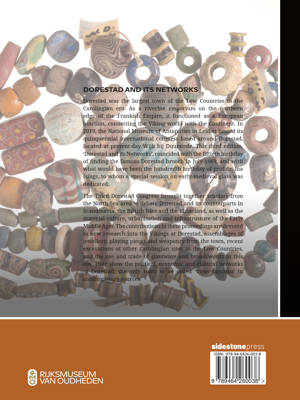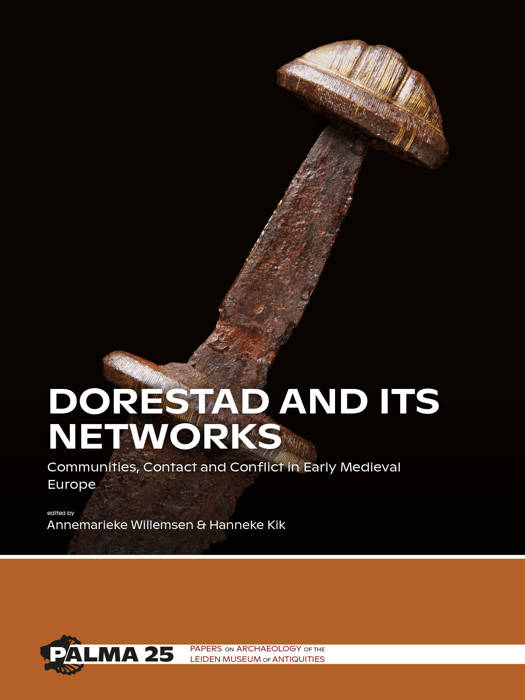
- Afhalen na 1 uur in een winkel met voorraad
- Gratis thuislevering in België vanaf € 30
- Ruim aanbod met 7 miljoen producten
- Afhalen na 1 uur in een winkel met voorraad
- Gratis thuislevering in België vanaf € 30
- Ruim aanbod met 7 miljoen producten
Zoeken


Dorestad and Its Networks
Communities, Contact and Conflict in Early Medieval Europe
€ 135,00
+ 270 punten
Omschrijving
Dorestad was the largest town of the Low Countries in the Carolingian era. As a riverine emporium on the northern edge of the Frankish Empire, it functioned as a European junction, connecting the Viking world with the Continent. In 2019, the National Museum of Antiquities in Leiden hosted its quinquennial international congress based around Dorestad, located at present-day Wijk bij Duurstede. This third edition, 'Dorestad and its Networks', coincided with the fiftieth birthday of finding the famous Dorestad brooch in July 1969, and with what would have been the hundredth birthday of Prof. Dr. Ina Isings, to whom a special session on early-medieval glass was dedicated.
The Third Dorestad Congress brought together scholars from the North Sea area to debate Dorestad and its counterparts in Scandinavia, the British Isles and the Rhineland, as well as the material culture, urbanization, and infrastructure of the Early Middle Ages. The contributions in these proceedings are devoted to new research into the Vikings at Dorestad, assemblages of jewelry, playing pieces and weaponry from the town, recent excavations at other Carolingian sites in the Low Countries, and the use and trade of glassware and broadswords in this era. They show the political, economic, and cultural networks of Dorestad, the only town to be called 'vicus famosus' in contemporary sources.
The Third Dorestad Congress brought together scholars from the North Sea area to debate Dorestad and its counterparts in Scandinavia, the British Isles and the Rhineland, as well as the material culture, urbanization, and infrastructure of the Early Middle Ages. The contributions in these proceedings are devoted to new research into the Vikings at Dorestad, assemblages of jewelry, playing pieces and weaponry from the town, recent excavations at other Carolingian sites in the Low Countries, and the use and trade of glassware and broadswords in this era. They show the political, economic, and cultural networks of Dorestad, the only town to be called 'vicus famosus' in contemporary sources.
Specificaties
Betrokkenen
- Uitgeverij:
Inhoud
- Aantal bladzijden:
- 216
- Taal:
- Engels
- Reeks:
Eigenschappen
- Productcode (EAN):
- 9789464260045
- Verschijningsdatum:
- 20/05/2021
- Uitvoering:
- Hardcover
- Formaat:
- Genaaid
- Afmetingen:
- 210 mm x 279 mm
- Gewicht:
- 970 g

Alleen bij Standaard Boekhandel
+ 270 punten op je klantenkaart van Standaard Boekhandel
Beoordelingen
We publiceren alleen reviews die voldoen aan de voorwaarden voor reviews. Bekijk onze voorwaarden voor reviews.








